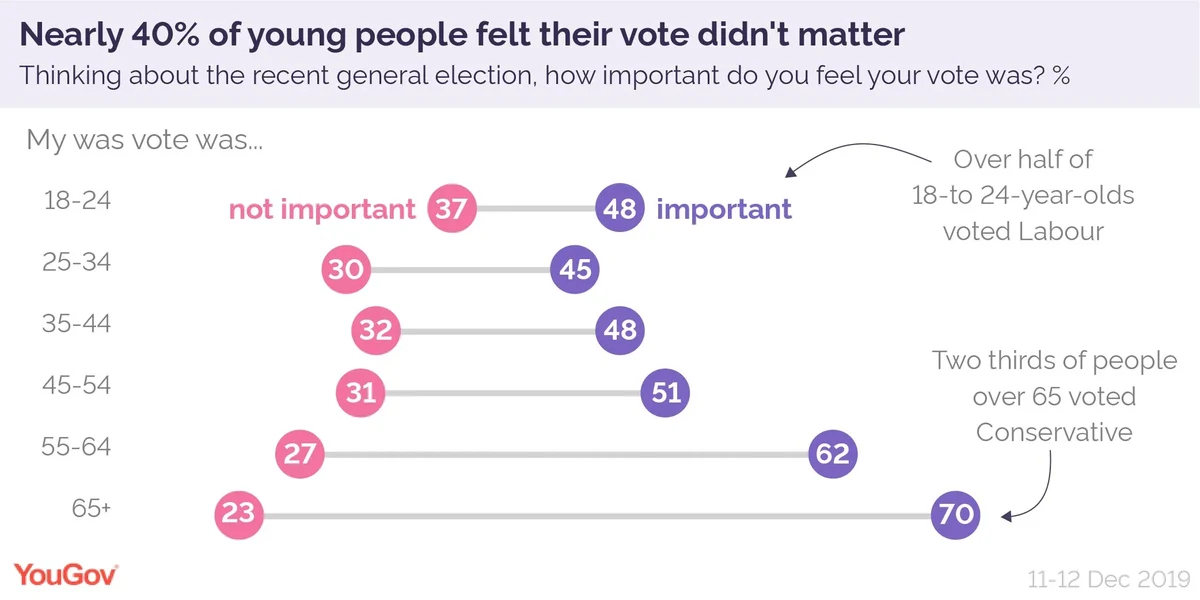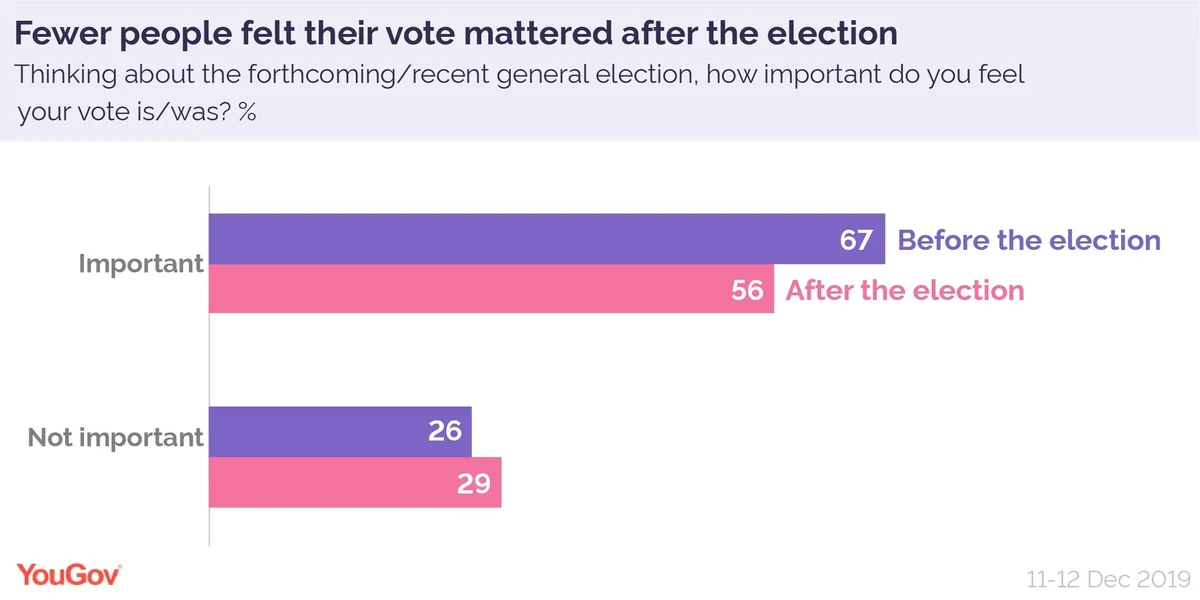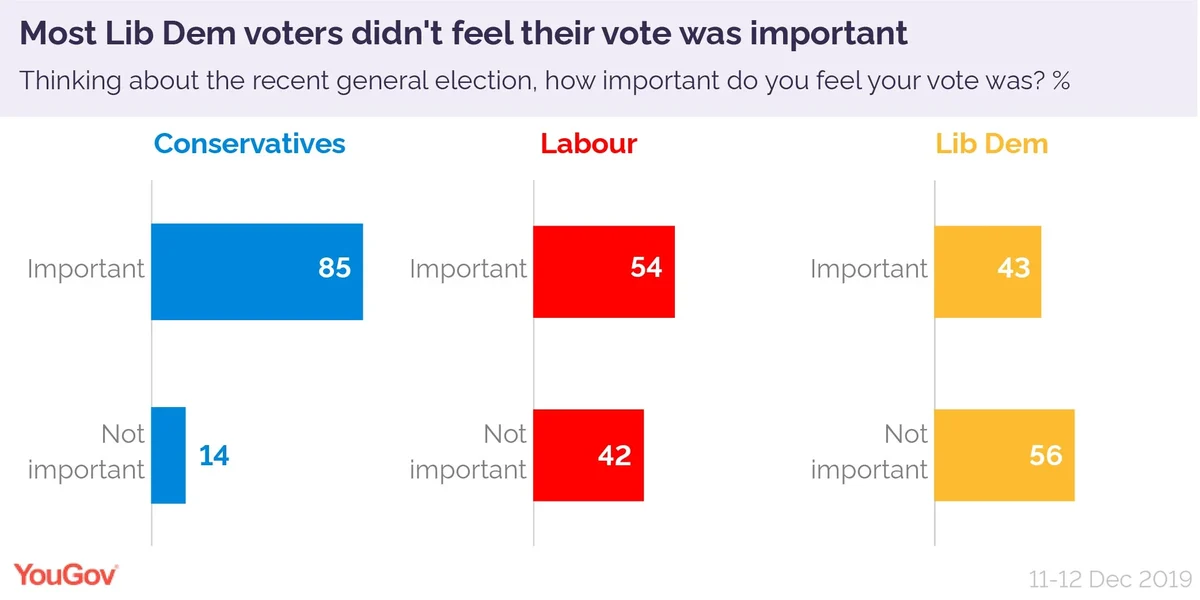Nearly 40% of people aged 18 to 24 said their vote was not important to the general election results – compared to less than a quarter of people over 65
About 32 million citizens cast their votes at the recent general election. But how people regard the power of the ballot depends on their age and how they vote.
After the election, people aged 18 to 24 were much more likely to say their vote was irrelevant at 37%, compared to the national average of 29%. Before they had voted, their pessimism was roughly in line with the wider population – a quarter then believed they had no influence on the outcome.
The 18-to 24-year-olds were also the unhappiest after the election results were in. Over half voted to put Jeremy Corbyn in power, while only one in five supported a Conservative government.
Older voters were a lot more optimistic about the importance of their vote. After the election, seven in ten people who are 65 and over felt their ballots mattered. Coincidently, two thirds supported the Conservatives.

Before the election, two thirds of Brits said their vote was important. After the figure dropped to just over half (56%). But overall, there was only a slight increase in people said who said their vote was insignificant from 26% to 29%.

How you vote determines if you think your vote matters
While there has been much talk about the shortcomings of the first past the post system in the aftermath of the election, Conservative voters aren’t losing sleep over it. Close to nine in ten (85%) said their vote was important, while only 14% believed it didn’t make a difference. Perhaps not surprising after nine years of Tory governments and another victory...
Meanwhile, Labour voters are fairly split on whether they had any impact on the results of the election. Just over half think their vote made a difference, but a significant chunk (42%) disagree.
Lib Dem voters are also likely to be doing some soul-searching. Over half believe their vote made no difference, while two out of five think it did.







